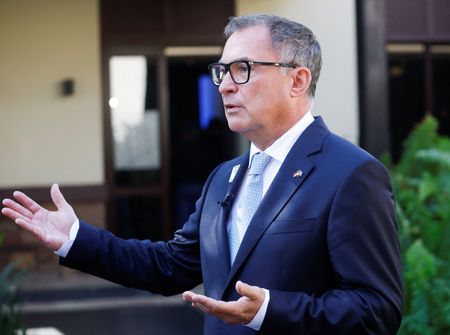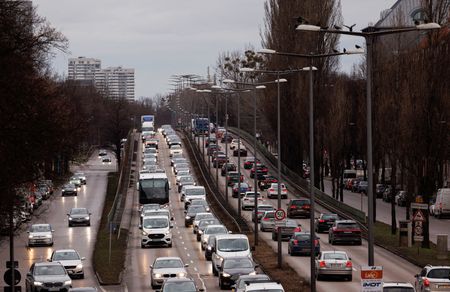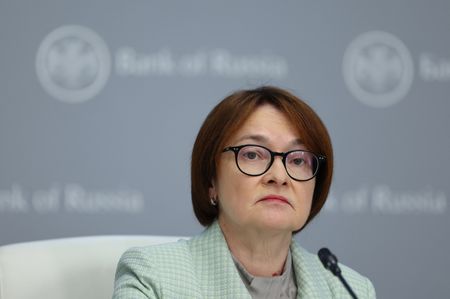FRANKFURT (Reuters) -Germany’s central bank presented several proposals on Friday for simplifying euro zone banks’ capital requirements.
The proposals outlined by Bundesbank President Joachim Nagel are part of Europe-wide efforts to ease rules for euro zone banks, which complain they are at a disadvantage to their U.S. peers, particularly since U.S. President Donald Trump’s administration took office.
TOO MANY BUFFERS AND REQUIREMENTS
Nagel, a member of the European Central Bank’s task-force on simplification, said the proliferation of minimum requirements and buffers meant banks could not spend some of that capital, even after receiving authorisation from their supervisors.
“The double counting of capital for buffers and parallel minimum requirements reduce the buffers actually available,” he said. “This, in turn, can lead to supervisors releasing buffers but banks not being able to use them.”
As one option, he proposed whittling down the number of requirements to just two and have banks meet them in full with equity and their own funds, known in supervisory jargon as Common Equity Tier 1 capital.
This also reflects concerns that banks have proven reluctant to use convertible bonds, known as Additional Tier 1 Capital, to absorb losses when they are not at risk of failure.
Nagel’s second option would be to use such AT1 capital, Tier2 bonds and subordinated liabilities only when a bank is wound down.
BUFFERS COULD BE COMBINED
As a third approach, Nagel said the countercyclical capital buffer and the systemic risk buffer could be combined “into a single, releasable buffer” that could be “released during periods of stress”.
Finally, Nagel repeated the Bundesbank’s proposal to create a separate regime for “small and non-complex banks”.
Some of the changes proposed by Nagel, if backed by his peers on the ECB’s Governing Council, would likely require changes to EU regulation, which often takes years.
The ECB’s task-force has recently presented a number of possible simplification measures to the Governing Council for feedback.
A final list, which will be sent to legislators in Brussels for consideration, is expected by the end of the year.
(Reporting By Francesco Canepa; Editing by Susan Fenton)










